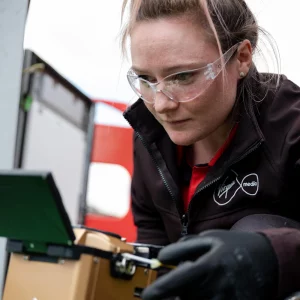Sponsored Links
Global Mobile Broadband Internet Data Traffic Triples Within Just 12 Months
Posted: 13th Aug, 2010 By: MarkJ
 Mobile device and technology manufacturer Ericsson has found that mobile internet data services, such as those offered by O2 , Three (3) , Vodafone , Orange and T-Mobile in the UK , grew 10 times faster than voice. It also revealed that actual global mobile data network traffic had nearly tripled in the last year.
Mobile device and technology manufacturer Ericsson has found that mobile internet data services, such as those offered by O2 , Three (3) , Vodafone , Orange and T-Mobile in the UK , grew 10 times faster than voice. It also revealed that actual global mobile data network traffic had nearly tripled in the last year.This is especially surprising when you consider that Mobile Broadband alone currently accounts for only 10% of total mobile subscriptions, albeit a rapidly increasing majority of the overall traffic. At the end of Q2-2010 Ericsson measure 225,000 Terabytes per month of mobile data.
Ericsson's Senior Vice President, CTO and President of Ericsson Silicon Valley, Håkan Eriksson, said:
"The growth and benefits of mobile broadband are undeniable. The business model for mobile broadband is becoming one of increasing profitability and competitive differentiation through superior quality of service.
Operator's focus on end-to-end converged IP networks is key to addressing the dramatic traffic growth, while reducing costs and improving the user experience. For consumers, mobile broadband is transforming the way we communicate and prosper as a society."
"The growth and benefits of mobile broadband are undeniable. The business model for mobile broadband is becoming one of increasing profitability and competitive differentiation through superior quality of service.
Operator's focus on end-to-end converged IP networks is key to addressing the dramatic traffic growth, while reducing costs and improving the user experience. For consumers, mobile broadband is transforming the way we communicate and prosper as a society."
As hard as it may be to believe and to put this into perspective, there was almost no data traffic on mobile networks in 2007 but in December 2009 it surpassed voice calls. Overall data is still predicted to double every year until 2015.
Naturally mobile networks are having to adjust to this rise in internet data usage, with some UK operators already moving to kill off their old Smartphone focused "unlimited" data allowances and others like Three (3) imposing a degree of traffic management.
Further improvements to capacity and speed are expected when Long Term Evolution ( LTE ) technology begins making its way into UK Mobile Broadband networks during 2011/12. However those seeking to take advantage of the benefits will need to buy new USB Modems (Dongles) and or handsets.
Today there are over 5 billion mobile subscriptions worldwide and Ericsson envisions 50 billion connected devices by 2020.
Search ISP News
Search ISP Listings
Search ISP Reviews
Latest UK ISP News








Cheap BIG ISPs for 100Mbps+
150,000+ Customers | View More ISPs
Cheapest ISPs for 100Mbps+
Modest Availability | View More ISPs
Latest UK ISP News
Helpful ISP Guides and Tips
Sponsored Links
The Top 15 Category Tags
- FTTP (6802)
- BT (3881)
- Politics (3075)
- Business (2767)
- Openreach (2663)
- Building Digital UK (2512)
- Mobile Broadband (2475)
- FTTC (2142)
- Statistics (2128)
- 4G (2092)
- Virgin Media (2025)
- Ofcom Regulation (1779)
- 5G (1732)
- Fibre Optic (1604)
- Wireless Internet (1595)
Sponsored
Copyright © 1999 to Present - ISPreview.co.uk - All Rights Reserved - Terms , Privacy and Cookie Policy , Links , Website Rules






























